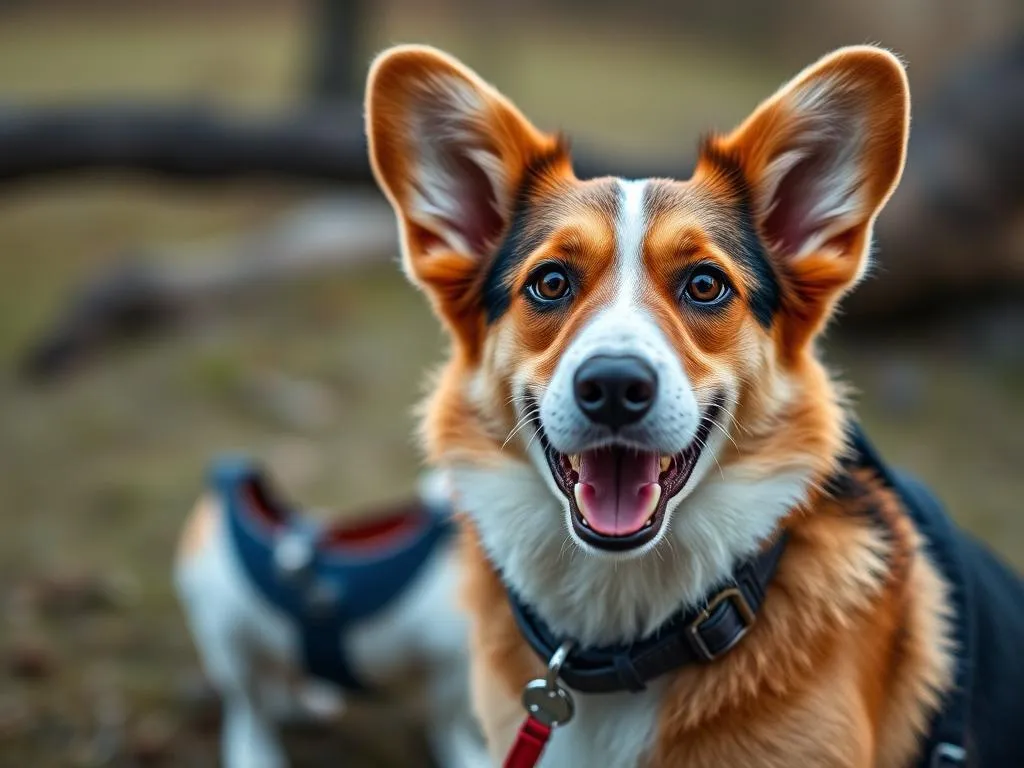
Training your Corgi is essential to ensuring a happy, healthy, and well-adjusted companion. Known for their intelligence and playful nature, these dogs can also exhibit a bit of stubbornness, making effective training techniques vital. In this guide, we will delve into various aspects of Corgi training, covering everything from understanding the breed to advanced training techniques.
Understanding Corgis
Breed Characteristics
Corgis are divided into two main breeds: the Pembroke Welsh Corgi and the Cardigan Welsh Corgi. Though they share some similarities, they have distinct physical characteristics and temperaments.
-
Pembroke Corgis: Recognizable by their shorter tails, Pembrokes are known for their outgoing and friendly nature. They tend to be more playful and energetic, often seeking attention and affection from their owners.
-
Cardigan Corgis: With a longer tail and a more robust build, Cardigans are generally more reserved but can be equally affectionate. They are known for their loyalty and protective instincts.
Common personality traits of both types include a strong herding instinct, high energy levels, and a love for human companionship. Understanding these characteristics is crucial for successful Corgi training.
Learning Style and Temperament
Corgis are intelligent dogs that can grasp commands quickly, but their stubbornness can sometimes pose challenges. They tend to learn best through a mix of visual, auditory, and kinesthetic methods.
-
Visual Learning: Corgis respond well to hand signals and visual cues, so incorporating these into your training can enhance their understanding.
-
Auditory Learning: Using clear, distinct commands will help your Corgi associate sounds with actions.
-
Kinesthetic Learning: Engaging your Corgi physically, such as through play or hands-on guidance, can reinforce learning.
Understanding your Corgi’s temperament is key—use patience and positive reinforcement to overcome moments of stubbornness.
Preparing for Training
Essential Supplies
Before diving into Corgi training, gather the necessary supplies to facilitate a smooth training process. Essential tools include:
- Collar and Leash: A comfortable collar and a sturdy leash are crucial for walks and training sessions.
- Treats: High-value treats can help motivate your Corgi and reinforce positive behavior.
- Clicker: A clicker can be a valuable tool for marking desired behaviors during training.
- Training Books: Consider investing in books that focus specifically on Corgi training or dog training in general.
Setting Up a Training Environment
Creating a conducive training environment is vital for your Corgi’s focus. Choose a distraction-free space where your dog can concentrate on learning. Ensure the area is comfortable and familiar, as this will help your Corgi feel at ease during training sessions.
Basic Commands
Sit, Stay, and Come
Teaching basic commands is an integral part of Corgi training. Here’s how to teach some of the most essential commands:
- Sit:
- Hold a treat close to your Corgi’s nose.
- Move your hand upwards, allowing their head to follow the treat, causing their bottom to lower.
-
Once in a sitting position, say “Sit” and give them the treat.
-
Stay:
- Ask your Corgi to sit.
- Open your palm in front of them and say “Stay.”
-
Take a few steps back. If they stay, return and reward them. Gradually increase the distance.
-
Come:
- Put your Corgi on a leash and say “Come” while gently pulling the leash towards you.
- When they reach you, reward them with treats and praise.
- Practice in different environments to reinforce the command.
Positive reinforcement is key—praise and reward your Corgi whenever they successfully follow a command.
Leash Training
Leash manners are crucial for a well-behaved Corgi. Here are techniques for teaching your Corgi to walk nicely on a leash:
- Start in a quiet area without distractions.
- Use treats to encourage your Corgi to walk beside you.
- If they pull ahead, stop walking and wait until they return to your side before continuing.
- Praise them for walking nicely and reward them with treats to reinforce the behavior.
Advanced Training Techniques
Socialization
Early socialization is essential for Corgis to grow into well-adjusted adults. Introduce your Corgi to various environments, people, and other dogs.
- Safe Environments: Dog parks, training classes, and puppy playdates are excellent places for socialization.
- Monitor interactions closely and ensure they are positive to build your Corgi’s confidence.
Addressing Behavioral Issues
Common behavioral issues in Corgis include excessive barking, chewing, and separation anxiety. Here are some training tips to manage these behaviors:
- Barking: Identify triggers for their barking and work on desensitizing them to those triggers. Use commands like “Quiet” and reward them when they stop barking.
- Chewing: Provide appropriate chew toys and redirect their chewing behavior. If they chew on something inappropriate, calmly redirect them to their toys.
- Separation Anxiety: Gradually increase the time your Corgi spends alone to help them adjust. Use positive reinforcement when they remain calm during your absence.
Fun Activities to Reinforce Training
Tricks and Games
Teaching your Corgi tricks is a fun way to reinforce training. Here are some popular tricks to consider:
- Roll Over: Start with your Corgi in a “Lie Down” position. Use a treat to guide them onto their side and then roll them over, rewarding them once they complete the roll.
- Play Dead: With your Corgi in a “Down” position, gently roll them onto their side and say “Bang!” as a cue. Reward them for staying in position.
Interactive games like fetch or tug-of-war can also strengthen your bond and reinforce training concepts.
Agility Training
Agility training is an excellent way to engage your Corgi both mentally and physically. It helps improve focus, coordination, and confidence. Here’s how to start:
- Begin with basic agility equipment like tunnels, jumps, and weave poles.
- Introduce each piece of equipment slowly, encouraging your Corgi to navigate through it using treats.
- Consider enrolling in agility classes for more structured training and socialization.
Maintaining Training Consistency
Establishing a Routine
Consistency is key to successful Corgi training. Establish a regular training schedule, incorporating short sessions throughout the day.
- Aim for 5-10 minute sessions multiple times a day.
- Reinforce commands and skills regularly to keep your Corgi engaged and learning.
Tracking Progress
Monitoring your Corgi’s progress is crucial for effective training. Keep a journal or use an app to note training milestones, behaviors learned, and areas needing improvement.
- Adjust your training techniques as necessary, ensuring you remain flexible and responsive to your Corgi’s development.
Resources for Continued Learning
Recommended Books and Online Courses
Investing in quality training resources can enhance your Corgi’s training journey. Look for books that focus specifically on Corgi training or general dog behavior. Online courses and webinars can also provide valuable insights and techniques to further your understanding.
Joining Corgi Communities
Connecting with other Corgi owners can be beneficial. Online forums, social media groups, and local clubs offer support, advice, and shared experiences that can enrich your training approach. Engaging with a community can also provide motivation and accountability in your training efforts.
Conclusion
Training your Corgi is a rewarding experience that fosters a strong bond between you and your dog. By understanding their unique traits, preparing adequately, and employing effective techniques, you can raise a well-behaved and happy companion.
Patience and consistency will be your allies on this journey, as each Corgi learns at their own pace. Remember, the bond you create through training will lead to a fulfilling relationship with your beloved Corgi. Embrace the process, celebrate small victories, and enjoy the time spent together.









